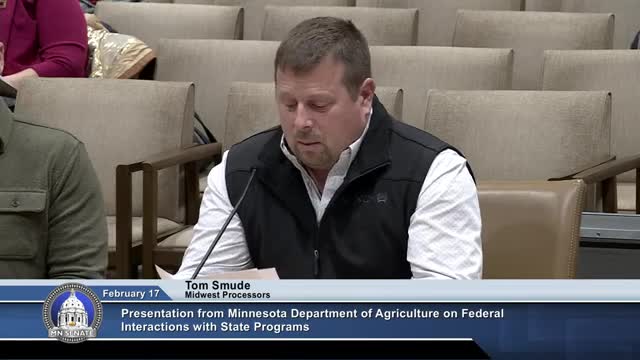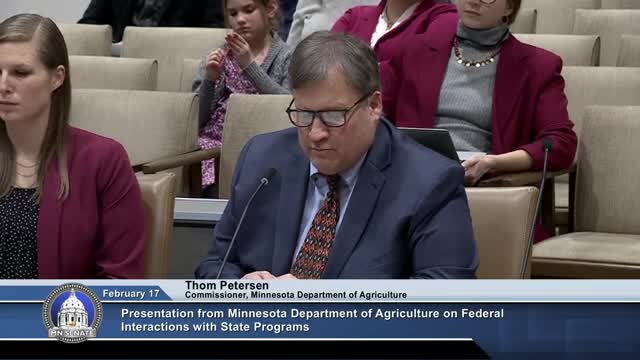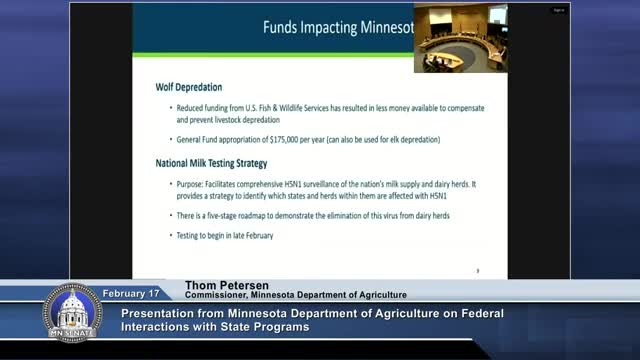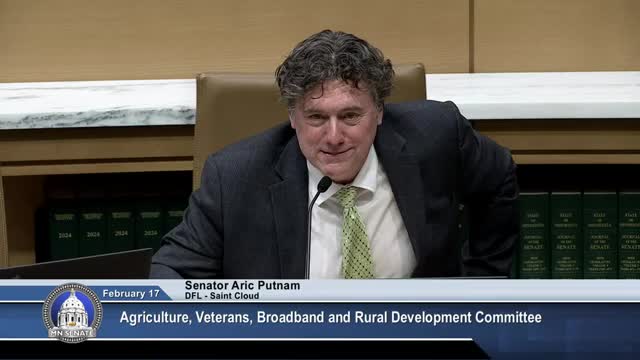Article not found
This article is no longer available. But don't worry—we've gathered other articles that discuss the same topic.

Upcycled sunflower protein project stalled by federal freeze; small processor and retail partners face cash and production risks

Freeze on local-food federal purchases leaves farmers and food banks owed money and cancelling orders

Minnesota to begin mandatory milk testing next week as H5N1 spreads; officials say testing helps isolate outbreaks

